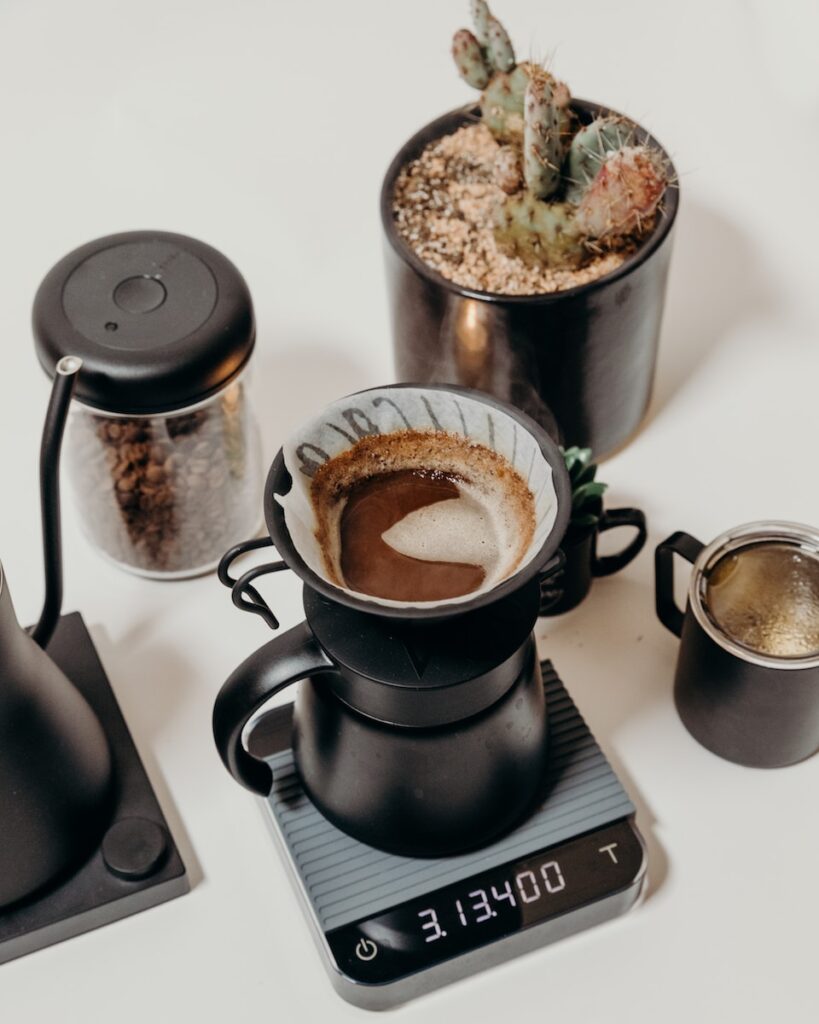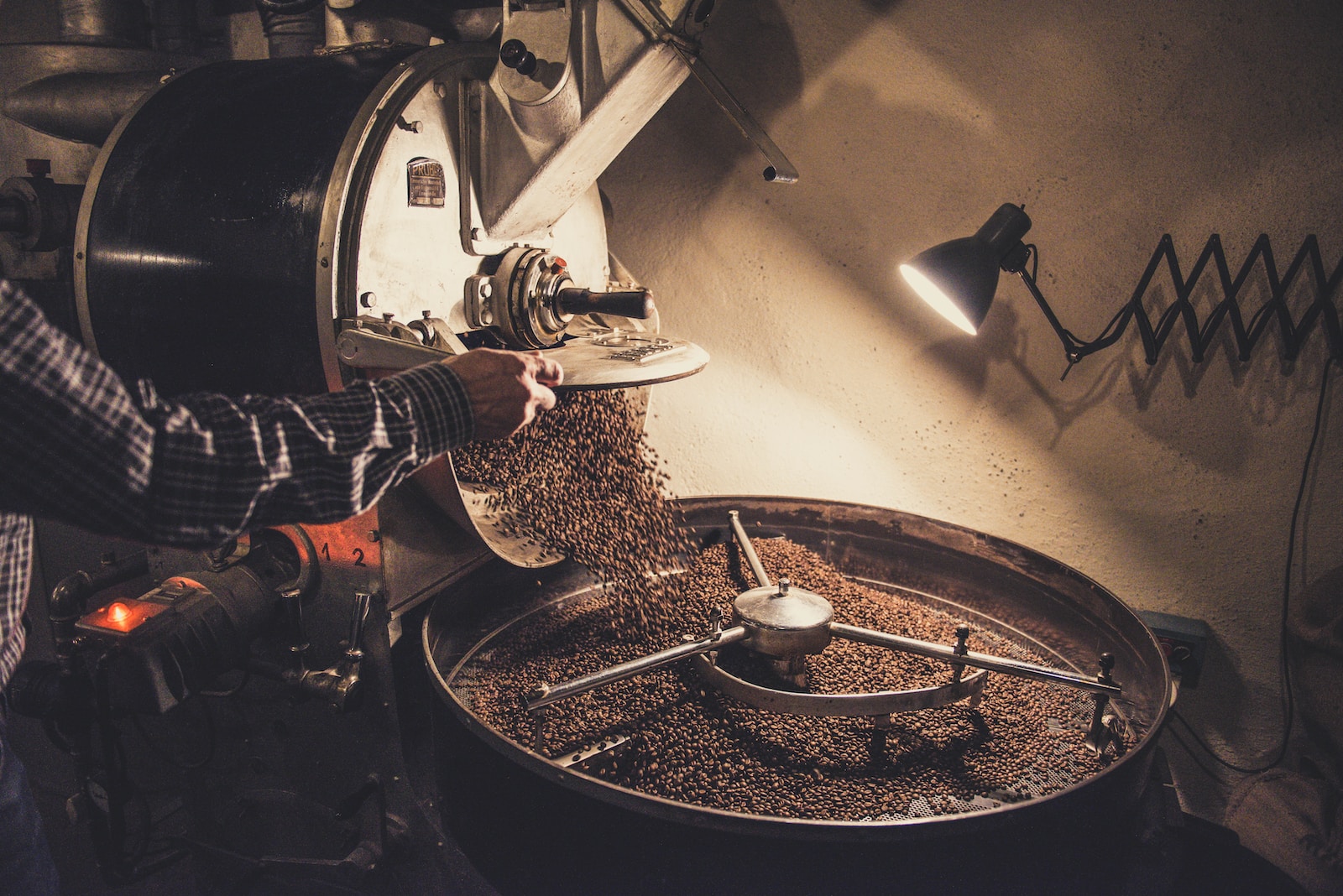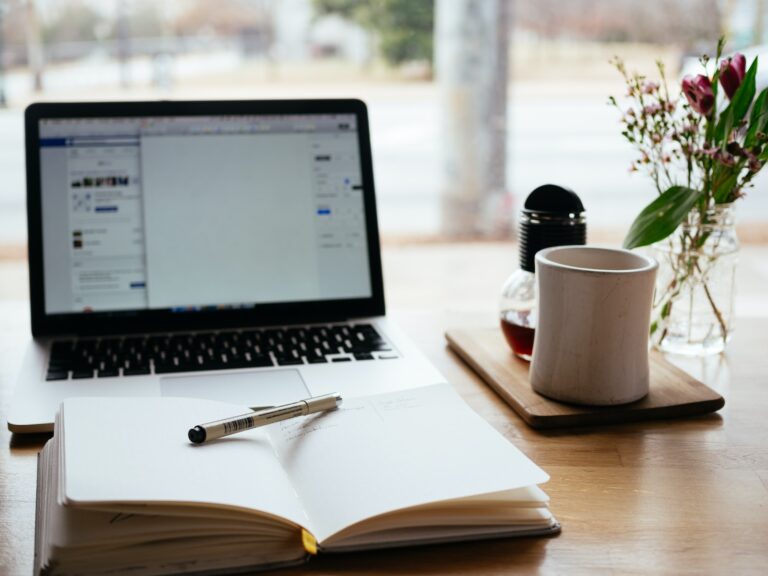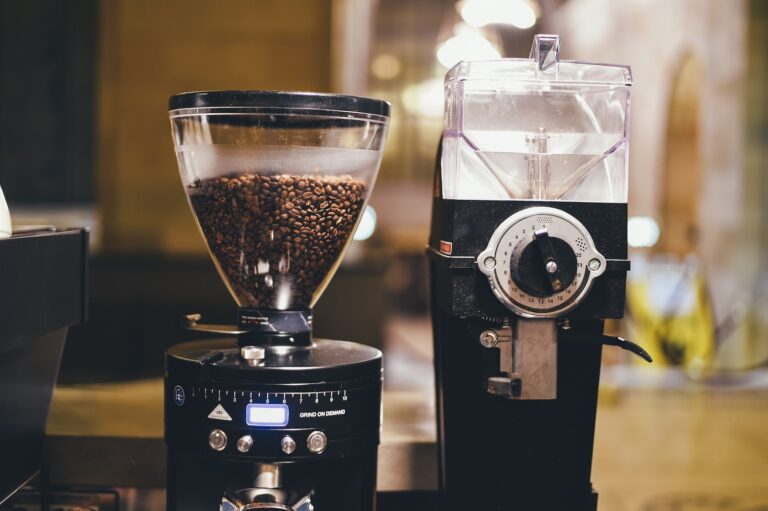Are you a coffee lover who’s also conscious about the environment? Well, this blog post is brewed just for you! Today, we’re diving deep into the world of eco-friendly coffee gear and exploring how sustainability can be infused into every aspect of your brewing routine. From reusable filters to compostable cups, we’ve scoured the market to bring you the most innovative and planet-friendly tools that will not only enhance your coffee experience but also make Mother Nature smile.
So grab a cuppa, settle in, and let’s discover a whole new way to savor our morning joe while protecting our beautiful planet. Welcome to “Eco-Friendly Coffee Gear: Sustainability in Brewing!”
Introduction to the concept of sustainability in coffee brewing

Sustainability has become an increasingly important consideration in the world of coffee brewing. As consumers become more conscious about their impact on the environment, they are looking for ways to make their daily habits and routines more sustainable. This includes their love for caffeine and their morning cup of coffee.
But what exactly does sustainability mean when it comes to coffee brewing? In simple terms, it refers to methods and practices that aim to reduce the negative impact on the planet throughout the entire process of growing, harvesting, roasting, and brewing coffee. It takes into account not just environmental factors but also social and economic considerations.
One of the main reasons behind this movement is the rise in demand for specialty coffee beans. As consumers become more educated about the quality and origin of their coffee, they are willing to pay a premium for beans that are sustainably sourced. This has led many producers and companies in the industry to adopt sustainable practices in order to stay competitive.
Current state of environmental impact in the coffee industry
Coffee is the second most traded commodity in the world and a multi-billion dollar industry. While it brings joy to millions of people every day, the production and consumption of coffee also have a significant impact on the environment.
One of the main environmental concerns in the coffee industry is deforestation. Coffee plants require specific climatic conditions to grow, which has led to many forests being destroyed and converted into coffee plantations. This destruction of natural habitats not only affects wildlife but also contributes to climate change.
Another major issue is water usage. Coffee requires large amounts of water during both production and processing stages. In countries where water scarcity is already a problem, excessive use by coffee farms can exacerbate this issue and cause harm to local communities who rely on these water sources for their daily needs.
The use of agrochemicals such as pesticides and fertilizers in conventional coffee farming practices also poses a threat to the environment. These chemicals seep into soil and water sources, causing pollution and harming biodiversity. They can also have detrimental effects on human health for workers who come into contact with them regularly.
Apart from production, packaging and transportation of coffee beans also contribute significantly to its environmental impact. The traditional method of roasting involves using vast amounts of wood or gas-fired machines, emitting harmful greenhouse gases into the atmosphere.
Types of eco-friendly coffee gear and their benefits
There are a variety of eco-friendly coffee gear options available on the market, each with their own unique benefits and advantages. In this section, we will explore the different types of sustainable coffee gear and how they can contribute to a more environmentally friendly brewing experience.
1] Reusable Coffee Filters
One of the most essential pieces of coffee gear is the filter, which separates the grounds from your brewed coffee. Traditional paper filters are disposable and often end up in landfills. However, reusable coffee filters made from materials such as hemp or organic cotton not only reduce waste but also produce a better-tasting cup of coffee due to their finer filtration.
2] Manual Coffee MakersAnother eco-friendly option for brewing your morning cup of joe is manual coffee makers such as French presses or pour-over drippers. These methods eliminate the need for electricity or single-use pods, making them an excellent choice for environmentally conscious individuals.
3] Compostable Coffee Pods
For those who prefer convenience and speed without sacrificing sustainability, compostable coffee pods are a great alternative to traditional plastic single-serve pods. Made from biodegradable materials like cornstarch or sugar cane fibers, these pods break down easily in composting facilities.
How to incorporate eco-friendly practices into your daily coffee routine
Coffee is an essential part of many people’s daily routine, and with its increasing popularity, it is important to think about the environmental impact of our coffee consumption. Fortunately, there are simple and easy ways to incorporate eco-friendly practices into your daily coffee routine without sacrificing taste or convenience.
1] Switch to a Reusable Coffee Mug:
One of the easiest ways to reduce waste in your daily coffee routine is by using a reusable mug or tumbler instead of disposable cups. Disposable cups contribute significantly to the global plastic pollution problem, with billions thrown away every year. By investing in a durable and high-quality reusable mug, you not only reduce your carbon footprint but also save money in the long run.
2] Choose Organic and Fair Trade Coffee:
When choosing coffee beans for your brew, opt for organic and fair trade options. Organic coffees are grown without harmful pesticides and chemicals that can harm ecosystems and pollute water sources. On the other hand, fair trade coffees ensure that farmers receive fair wages and work under safe conditions. Buying these types of coffee supports sustainable farming practices and helps protect both human rights and the environment.
3] Invest in Reusable Filters:
Many traditional coffee maker filters are made from paper or plastic materials that end up in landfills after just one use. A better alternative is investing in a reusable filter made from stainless steel or cloth materials that last for years. These filters not only reduce waste but also allow more flavor oils to pass through into your cup, resulting in a better -tasting and more sustainable cup of coffee.
4] Compost Your Coffee Grounds:
After brewing your coffee, don’t just throw away the used grounds. Coffee grounds make an excellent addition to compost piles, providing valuable nutrients to the soil and promoting a healthy environment. You can also use them as a natural fertilizer for your plants.
5] Shop Local:
Choosing locally roasted coffee beans not only supports small businesses but also reduces carbon emissions associated with shipping goods long distances. Additionally, buying from local roasters often means getting fresher beans, resulting in a better-tasting cup of coffee.
6] Use Sustainable Milk Options:
If you enjoy milk in your coffee, consider switching to plant-based options like almond or oat milk instead of traditional dairy milk. Plant-based milks have a lower environmental impact as they require fewer resources to produce and emit less greenhouse gases.
7] Reuse Coffee Grounds for Household Purposes:
Coffee grounds have several household uses beyond making a perfect cup of coffee. You can use them as a natural deodorizer for your fridge or shoes, exfoliate your skin in the shower, or even repel pests in your garden.
Real-life examples of cafes and individuals using sustainable coffee gear
There are countless cafes and individuals around the world who have taken the initiative to incorporate sustainable coffee gear into their daily routines. From small businesses to large corporations, these inspiring examples show that sustainability in brewing is not only possible, but also beneficial for both the environment and their bottom line.
One popular example is Blue Bottle Coffee, a specialty coffee company with locations in the United States and Japan. They have made a commitment to using eco-friendly materials for all of their disposable products, such as cups, lids, straws and stirrers. In addition, they have partnered with Terra Cycle to recycle single-use plastic bags and even offer a discount on drinks to customers who bring in their own reusable cups.
Similarly, Starbucks has also made strides towards sustainability by implementing more eco-friendly practices into their operations. This includes offering discounts for customers who bring in reusable cups or mugs, using compostable paper straws instead of plastic ones, and introducing a plant-based alternative milk option for their beverages. They have also set ambitious goals to reduce waste in their stores by 50% by 2030.
On an individual level, there are many people who have made it their personal mission to use sustainable coffee gear at home. One example is Lauren Singer, known as “the zero-waste girl” on social media. She runs her own business selling organic household products that are packaged in glass jars and produces almost no waste through her own daily habits such as making her own nut milk and using reusable coffee filters.
Challenges and solutions for implementing sustainability in brewing on a larger scale
Challenges in implementing sustainability in brewing on a larger scale:
Brewing coffee on a larger scale can pose several challenges when it comes to maintaining sustainable practices. As the demand for coffee continues to increase, so does the pressure on the industry to produce more, resulting in wasteful and harmful practices that have a negative impact on the environment.
1] Sourcing Sustainable Ingredients:
One of the major challenges faced by large-scale coffee producers is sourcing sustainable ingredients. The use of pesticides, fertilizers, and other chemicals on coffee crops not only pollutes waterways but also causes harm to local ecosystems and wildlife. Furthermore, deforestation and land degradation caused by clearing land for new plantations also contribute to carbon emissions. Finding ways to source organic and ethically grown beans can be difficult, especially when trying to meet high demand.
2] Energy Consumption:
Coffee production requires a significant amount of energy from roasting to packaging and distribution. This results in carbon emissions from fuel consumption that contribute significantly to climate change. Large-scale operations often rely on fossil fuels as their main source of energy, which has harmful effects on the environment.
3] Water Consumption:
Another challenge facing large-scale coffee production is water usage. Coffee processing involves using vast amounts of water for washing, steam cleaning, cooling down equipment, or fermenting beans before drying them out – all contributing to wastage of this precious resource.
Conclusion
As we have seen, there are many simple and effective ways to make our coffee brewing process more eco-friendly. By investing in reusable gear, sourcing sustainable beans, and being mindful of water usage and waste production, we can minimize our impact on the environment while still enjoying a delicious cup of coffee.
Let’s all do our part to promote sustainability in brewing and make a positive difference for future generations to come. Cheers to an eco-friendly cup of coffee!







